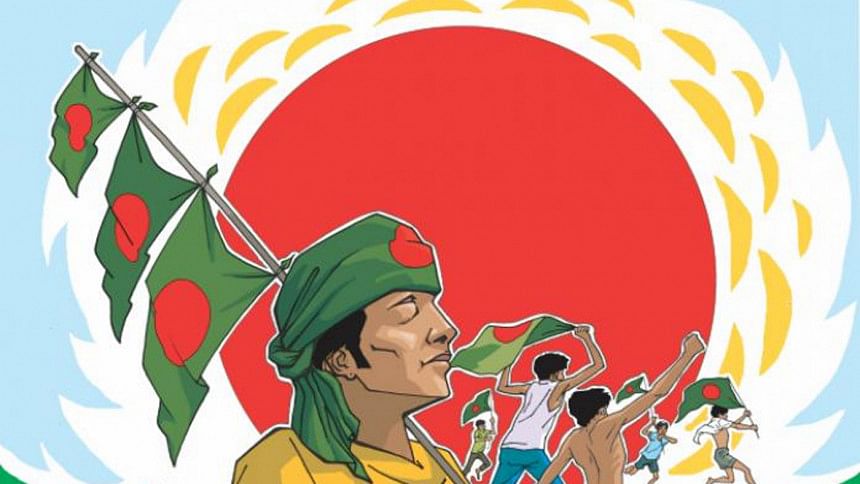School threatened over Victory Day cultural event

With the Victory Day in less than a month, organisations and individuals across the country are gearing up to celebrate a day of great pride for this nation, made even more special on this occasion by Mujib Borsho and the fact that we will be stepping into our 50th year as independent Bangladesh. Against this backdrop, it is extremely distressing to see that after all these years, there are still certain groups that cannot partake in the joy and pride we feel in our liberation, and are using prejudiced beliefs as an excuse to oppose everything that we as a nation stand for.
This became apparent in a report published in this daily yesterday, which detailed how a school in Dinajpur's Ghoraghat area had suspended all rehearsals for its Victory Day cultural programmes after receiving a letter demanding a halt to such activities as Islam does not support it. The letter was sent by a group calling themselves Bangladesh Islamic Shachetan Dal on November 4, in which they said they are ready to "sacrifice their lives for Allah". According to the general diary filed by the headmaster in this regard, three villagers also personally went to the school on November 6 and demanded a stop to the rehearsals.
There is no need for us to get into the misguided interpretations that twist a peaceful religion into hateful ideas that are on a direct collision course with cultural spaces and practices. We are, however, extremely concerned, not only because we are seeing a rise in such violent and extremist ideas—cricketer Shakib Al Hasan, for example, recently received death threats for attending a puja celebration in Kolkata—but also because of the fear that those on the receiving end of such threats are suffering. Why did the Ghoraghat school have to suspend its rehearsals? Why did the law enforcement agencies not take adequate steps to protect the children and give their guardians the confidence to continue with their cultural activities? What message does this send to minority communities and cultural practitioners across the country when such threats, instead of being dealt with as crimes, are given in to, thus validating their illiberal demands and achieving their ends? How will we inculcate the values and spirit of our Liberation struggle in young people if they are being undermined by extremist forces?
We urge the authorities to look into such incidents with the utmost seriousness and take immediate steps to apprehend the people behind the threats. This week, the prime minister's ICT advisor and CRI chairperson, Sajeeb Wazed Joy, said that Bangladesh can never budge from its founding principle of secularism. We hope this is truly the stance of everyone in government, and that all involved authorities will play their part in rooting out all extremist misinterpretations of faith which have no place in a liberal and democratic society.

 For all latest news, follow The Daily Star's Google News channel.
For all latest news, follow The Daily Star's Google News channel. 



Comments